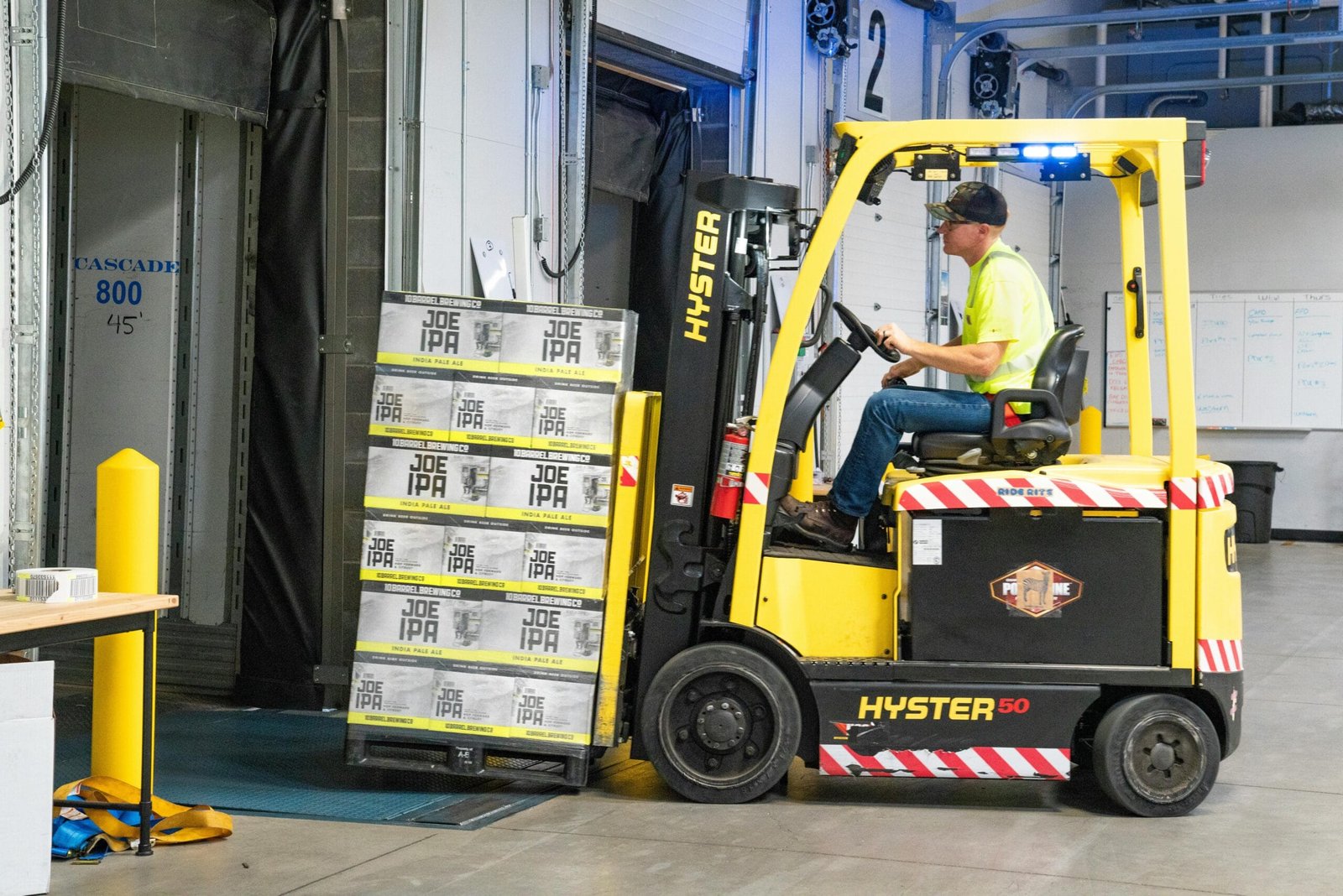Enhancing Forklift Battery Safety Practices for Forklift Safety Day 2024
Forklifts are indispensable in workplaces, bolstering productivity and efficiency. However, they also present significant safety risks, with numerous workplace incidents involving these machines. This underscores the critical need to adhere to stringent forklift safety guidelines.
National Forklift Safety Day, an initiative led by the Industrial Truck Association, is dedicated to advocating for safety among those engaged in the production, operation, and vicinity of forklifts. The eleventh annual event is set to take place on June 11, 2024.
In alignment with this campaign, Qianhang is dedicated to providing essential insights on key safety recommendations and protocols concerning forklift battery safety. Let’s work together to establish a safer and more secure environment for all individuals interacting with or operating forklifts.
Navigating Forklift Battery Safety: Key Considerations
The landscape of material handling has witnessed a gradual shift in forklift technology from traditional internal combustion engines to advanced battery-powered solutions. Consequently, ensuring the safety of forklift batteries has become a crucial aspect of overall forklift safety protocols.
Comparing Lithium and Lead-Acid Battery Safety
Electric forklifts commonly rely on two primary battery types: lithium forklift batteries and lead-acid forklift batteries. While each variant offers unique advantages, lithium forklift batteries stand out for their enhanced safety features.
Lead-acid batteries, comprising lead and sulfuric acid, pose risks of spillage if mishandled. Moreover, their charging process demands specialized vented stations to counter the emission of harmful fumes. The necessity to swap lead-acid batteries during shifts introduces hazards due to their weight, increasing the likelihood of accidents and injuries.
In contrast, operators of lithium-powered forklifts sidestep these dangers. Lithium batteries can be efficiently charged within the forklift itself, eliminating the need for cumbersome swapping procedures and lowering associated risks. Furthermore, all lithium-ion forklift batteries are equipped with a sophisticated Battery Management System (BMS) that offers comprehensive protection mechanisms, ensuring heightened safety standards.
Choosing a Secure Lithium Forklift Battery: Considerations
Many manufacturers of lithium forklift batteries integrate advanced technologies to bolster safety standards. As a prominent member of the Industrial Truck Association and a leader in industrial Li-ion batteries, Qianhang prioritizes quality and safety in developing reliable, efficient, and secure lithium power solutions that surpass industry safety benchmarks.
Qianhang adopts LiFePO4 technology for its forklift batteries, recognized for its superior thermal and chemical stability. These batteries are less prone to overheating and are non-combustible even when punctured, guaranteeing automotive-grade reliability for demanding applications. The self-developed BMS offers real-time monitoring, preventing overcharging, over-discharge, short circuits, and more.
Moreover, Qianhang’s forklift batteries feature a built-in fire extinguishing system, utilizing fireproof materials to prevent thermal runaway and enhance safety. To ensure utmost safety, these batteries are certified to meet stringent standards such as UL1642, UL 2580, UL9540A, UN 38.3, and IEC 62619, with chargers adhering to UL1564, FCC, KC, and CE norms.
Safety Measures for Handling Lithium Forklift Batteries
While procuring a safe battery from a reputable supplier is essential, adherence to best practices for operating forklift batteries is equally crucial. Here are key safety tips to consider:
- Always follow the manufacturer’s instructions for installation, charging, and storage.
- Avoid exposing the battery to extreme environmental conditions.
- Turn off the charger before disconnecting the battery to prevent arcing.
- Regularly inspect electrical components for signs of wear or damage.
- Engage authorized professionals for maintenance and repairs in case of battery failures.
Comprehensive Operation Safety Practices
In conjunction with battery safety practices, forklift operators must observe additional safety measures for optimal forklift operation:
- Wear full personal protective equipment (PPE) as per regulations.
- Conduct daily inspections using a safety checklist before each shift.
- Adhere to load capacity limits to prevent accidents.
- Exercise caution at blind spots and while reversing by using the horn.
- Never leave a running forklift unattended or keys within reach.
- Operate within designated pathways and adhere to speed limits.
- Only trained and licensed individuals should operate forklifts, with a minimum age requirement of 18 in non-agricultural settings.
- By prioritizing safety, upholding industry standards, and investing in comprehensive training, businesses can significantly enhance forklift safety and bolster workplace productivity. Remember, forklift safety is an ongoing commitment that requires diligence and constant vigilance to ensure a secure and efficient working environment.

Your writing awakens the mind and softens the heart — a rare and powerful combination.
tks dear, wish you have a good life.